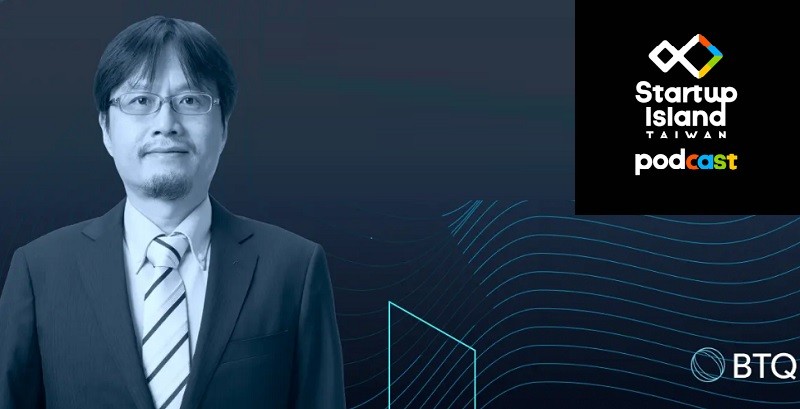
TAIPEI (Taiwan News) — From their research hub in Taipei, Taiwan, BTQ is preparing for the next era of cybersecurity by developing digital cryptography tools at the dawn of the quantum computing era.
For most readers, that probably sounds very abstract, especially because a quantum computer has not actually been invented yet. However, governments and businesses are anticipating that such a device will appear in the near future.
Excited by the possibilities and concerned over potential dangers that quantum computers may present, companies like BTQ and others are positioning themselves to provide security solutions for digital assets against quantum-computer-based attacks.
Recently, BTQ’s Chief Scientific Officer Cheng Chen-Mou (鄭振牟) joined the Startup Island Taiwan podcast with host Jeremy Olivier, where he discussed some of the issues surrounding post-quantum cryptography (PQC) and explained the work that BTQ is doing.
Post-quantum cryptography is a fascinating and challenging field that combines the study of physics, mathematics, computer science and electrical engineering, said Cheng, who has been involved in the field for over 15 years as both a developer and in academia.
To explain the relationship between quantum computing and post-quantum cryptography, Cheng said that for BTQ, quantum computing is often conceptualized as an adversary. On the other hand, post-quantum cryptography is envisioned as the tools and skills needed to defend against the risks posed by such an adversary.
Right now, one of BTQ’s main focuses is on blockchain cryptography, specifically the current process of transferring sensitive information on publicly accessible networks to more secure blockchain networks. This transition was called for by the U.S. Department of Commerce’s National Institute of Standards and Technology (NIST).
Cheng also noted that NIST is a major player in orchestrating this transition. Back in July, after six years of research and analysis, NIST announced standardized algorithms for quantum computing operations. The announcement has been a great boon to companies like BTQ, because they can now begin to develop related applications and technologies using a set of accepted global standards.
It is now an urgent priority for companies and governments across the world to secure web transactions that are still taking place on non-encrypted networks. The older networks are simply not secure against current cyber threats, said Cheng, and BTQ wants to help this transition along by researching cryptographic tools to secure these new blockchain-based networks.
Using the metaphor of a home renovation, Cheng said that right now the entire internet needs to “replace all the pipes” to ensure that online security is watertight, and that there are no weak links. Given the massive scale of such an operation, there are lots of opportunities as well as tough challenges on the horizon for those involved in PQC. BTQ is just a small player, but wants to be a part of that effort, said Cheng.
Cheng emphasized that even devices with very little computing power, such as refrigerators or other home appliances, must also be secured. One aspect of this process is developing new hardware for such devices.
In September, BTQ announced it was collaborating with Taiwan’s Industrial Technology Research Institute (ITRI) to do just that. The two will work together to develop a new type of computer chip to enhance security for these new blockchain-based networks and also, hopefully, reduce energy usage in the process.
The full interview can be streamed by the player above or on the Startup Island Taiwan podcast page. Readers can learn more about BTQ by visiting their website. For those who are interested, BTQ is hosting a PQC workshop in Taipei in early December as part of Taipei Blockchain Week.

















